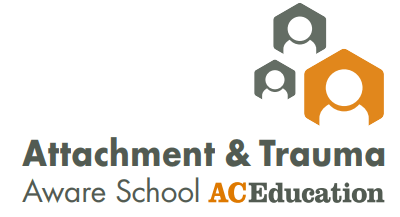British Values in St Catherine’s Catholic Primary School
St Catherine’s School is committed to serving its community. It recognises the multi-cultural, multi- faith and ever-changing nature of the United Kingdom. It also understands the vital role it has in ensuring that groups or individuals within the school are not subjected to intimidation or radicalisation by those wishing to unduly, or illegally, influence them.
It follows equal opportunities guidance which guarantees that there will be no discrimination against any individual or group, regardless of faith, ethnicity, gender, sexuality, political or financial status, or similar. St Catherine’s is dedicated to preparing children for their adult life beyond the formal, examined curriculum and ensuring that it promotes and reinforces British values to all its children.
The government set out its definition of British values in the 2011 Prevent Strategy. The Prevent strategy was refocused in 2015 following Lord Carlile’s review.
The five key British Values are:
- Democracy
- The rule of law
- Individual liberty
- Mutual respect
- Tolerance of those of different faiths and beliefs
The school uses strategies within the national curriculum and beyond to secure such outcomes for children. The examples that follow show some of the many ways we seek to instil British Values. St Catherine’s is a Rights Respecting School. The UNICEF programme develops the community’s knowledge of Human Rights and embeds the principles behind the Rights in the curriculum.
Democracy

Democracy is an embedded and understood concept at St Catherine’s . Children have the opportunity to have their voices heard. Democracy is an understanding of how citizens can influence decision-making through the democratic process.
What could the adults do and provide?
- Ensure that everyone has a right to have a say
- Ensure the child’s, parent’s and staff’s voice is heard Support children to take turns
- Encourage children to share
- Support children to become independent and take responsibility
- Support children to learn boundaries
- Give children the opportunities to make choices
- Promote a climate to share opinions and ideas
- Ensure that children are listened to
- Respect everyone as an individual
- Role model behaviour
- Celebrate differences in people
- Support children to have a positive sense of their own identity and culture
Possible Evidence
- Pupil Voice
- School Council–children voting for their class representative
- Pupil / Parent/ Staff Questionnaires
- Parents Support Group
- Parent Partnership
- Staff Meetings/Briefings
- School Mission Statement
- School Behaviour Policy
- Religious Education Lessons/ PSHE /Circle Time
- Cross Curricular Speaking and Listening opportunities
- House Captains/Peer Mentors/School Council/ RRS Ambassadors
- Assemblies linked to bible stories
- Visitors to school
- Lenten/Advent Charity Work & Fundraising throughout the year
- Displays
- High expectations of behaviour and what can be achieved by each individual
- International Week/ Open Day/ Coffee Mornings
- History / Geography curriculum
- Website
- Feedback to children re behaviour/work.
The Rule of Law:

The importance of rules and laws, whether they be those that govern the class, the school, or the country, are consistently reinforced throughout regular school days, as well as when dealing with behaviour and through school assemblies. Children are taught the value and reasons behind laws, that they govern and protect us, the responsibilities that this involves and the consequences when laws are broken. Visits from authorities such as the Police and Fire Service etc. are regular parts of our calendar and help reinforce this message.
What could the adults do and provide?
- Support children to understand right and wrong
- Clear Behaviour Policy that is consistently enforced by all staff
- Support children’s understanding of how the law of the land and our school rules reflect the 10 Commandments
- Share and support the rules of the setting with all stakeholders
- Ensure children have an understanding of the consequences of their actions
- Ensure there is no discrimination within the setting
- Ensure children have a sense of fairness
- Listen to the child’s voice when deciding the setting’s rules and boundaries
Possible Evidence
- The children’s creation of their own class rules based on the ‘School Rules’.
- School Behaviour Policy shared with all stakeholders –also on the
- Pupil Voice
- Circle time/Religious Education Lessons/Sacrament of
- Children encouraged totake responsibility for their own
- System of ‘Restorative Justice’.
- Safeguarding/Anti-bullying/SEND
- Behaviour log/Bullying log/Racist incidents log
- Pupil Voice
- School Council/ RRS Ambassadors
- School Assemblies on the theme of fairness/discrimination
- Support from local police liaison officer –Assemblies to introduce themselves and to reinforce the law of the
- Support from traffic wardens etc to reinforce local
- Home/School Agreements
- Pupil/Parent
- Staff meetings
- Anti- Bullying
- Visitors to school – people who help
- British History topics outlining how law has evolved
Individual Liberty:

At St Catherine’s children are actively encouraged to make choices, knowing that they are in a safe and supportive environment. As a school we educate and provide boundaries for young pupils to make choices safety, through of provision of a safe environment and empowering education. Children are encouraged to know, understand and exercise their rights and personal freedoms and advise how to exercise these safely, for example through our E-Safety and PSHE lessons. Whether it be through choice of challenge, of how they record, of participation in our numerous extra-curricular clubs and opportunities, children are given the freedom to make choices.
What could the adults do and provide?
- Plan for individual children
- Support the rights of the child
- Support children to make the right choices
- Listen to everyone’s point of view
- Ensure all stakeholders are considerate of others and the environment
Possible Evidence
- Mission Statement/ School logo “Loving and learning together as Jesus taught ”
- RE Curriculum – encouraging children to respect both themselves and others
- Target setting with children
- Encouraging good listening skills
- Pupil Voice
- Differentiation in planning/teaching
- Encouraging the children to be independent and reflective learners
- ECHP’s Medical plans etc
- Parents/Pupil Meetings
- Reports to parents
- Behaviour Policy
- Anti- bullying policy
- Safeguarding
- Home School
- School Website
Encouraging an understanding of the rights of the child through CAFOD, NSPCC and Childline.
Mutual Respect:

Part of our school ethos and behaviour policy revolves around Core Values such as ‘Respect’, and pupils have been part of discussions and assemblies related to what this means and how it is shown.
What could the adults do and provide?
- Provide opportunities to consult parents
- Work together as a team respecting each other
- Ensure parents are involved in their children’s learning
- Provide positive role models
- Value individuality
- Value all cultures and beliefs
- Respect all languages
- Respect each other’s space
- Ensure all stakeholders feel safe and secure
Possible Evidence
- The School Mission Statement
- reation of their own class rules based on the ‘School Rules’.
- School Behaviour Policy shared with all stakeholders –also on the
- Pupil Voice
- Circle time/Religious Education Lessons/Sacrament of
- Children encouraged to take responsibility for their own
- System of ‘Restorative Justice’.
- Safeguarding/Anti-bullying/SEND
- Behaviour log/Bullying log/Racist incidents log
- School Council
- School Assemblies on the theme of fairness/discrimination
- Support from local police liaison officer –ie assemblies to introduce themselves and to reinforce the law of the
- Support from traffic wardens etc to reinforce local
- Home/School Agreements
- Key Stage
- Pupil/Parent
- Anti- Bullying
- Visitors to school -people who help
British History topics outlining how law has evolved.
Tolerance of those Different Faiths and Beliefs:

This is achieved through enhancing pupils understanding of their place in a culturally diverse society and by giving them opportunities to experience such diversity. Assemblies and discussions involving prejudices and prejudice-based bullying have been followed and supported by learning in RE and PSHE. Trips to different places of worship are organised as part of our RE topics or guests are invited in to lead workshops.
What could the adults do and provide?
- Combat discrimination through awareness
- Ensure ethos of setting reflects an awareness of all cultures and beliefs
- Have knowledge and understanding of other cultures and beliefs
- Celebrate diversity within and outside the setting
- Role model behaviour and attitudes towards others
- Encourage all parental input in the setting
Possible Evidence
- Assemblies e.g Anti-Bullying, Gospel Assemblies based on how Jesus encouraged tolerance in such stories as the’ Good Samaritan’ and the ‘Woman at the Well’
- Class discussions
- Study of other faiths
- Visits
- Ethos/vision
- Website
- Celebrations
- Festivals
The British Values also makes strong links with our Gospel Values: Faithfulness, Truth, Respect, Humility, Forgiveness, Dignity, Service and Tolerance.



